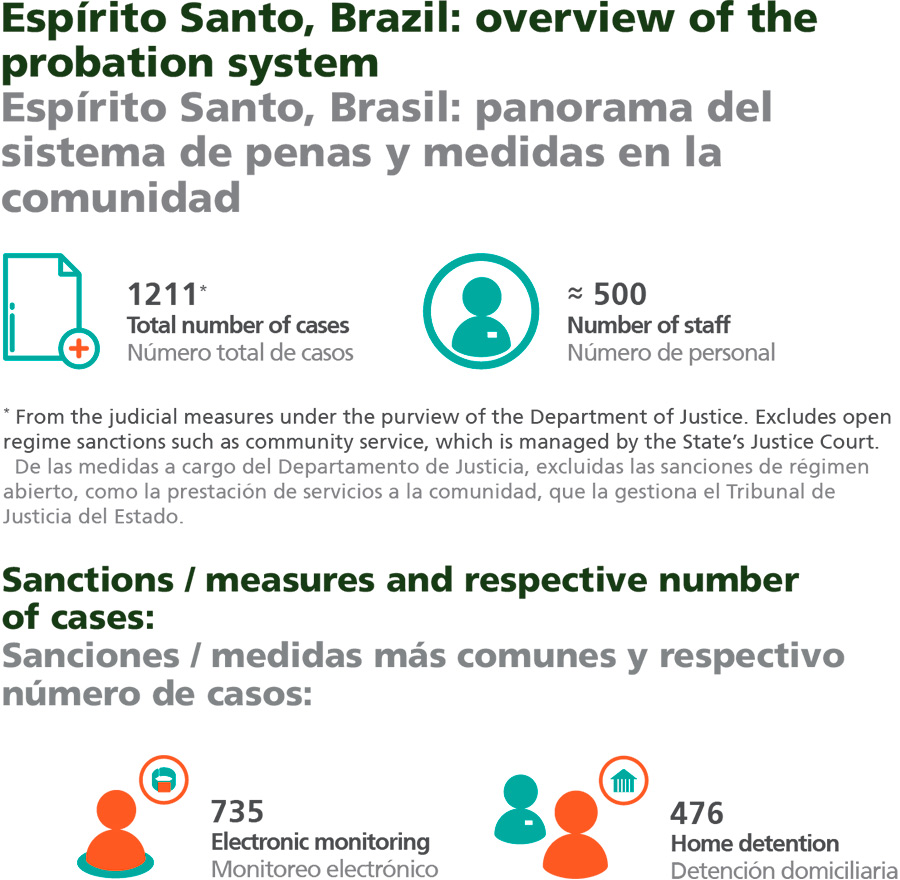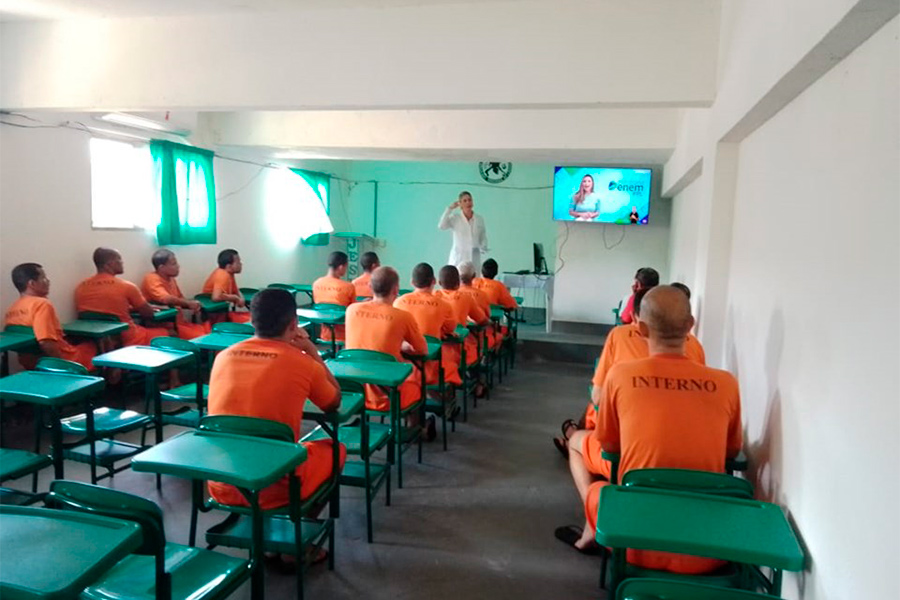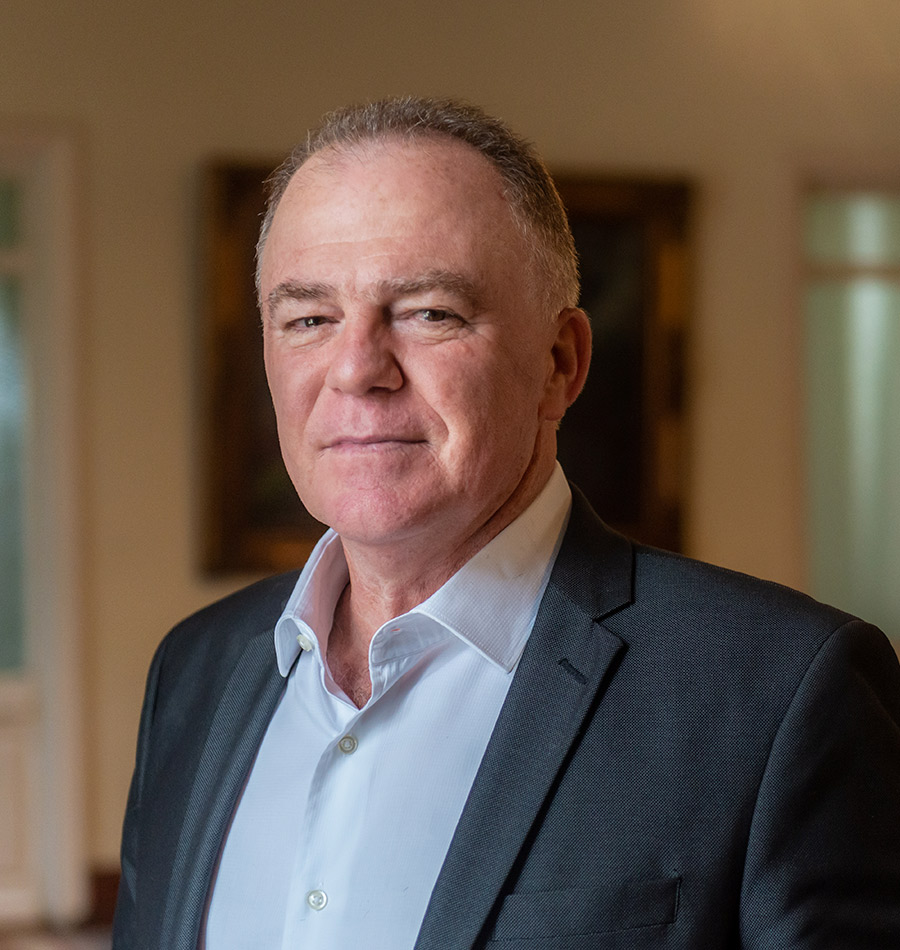Interview
Renato Casagrande
Governor, Espírito Santo, Brazil
In this interview, Renato Casagrande, the Governor of Espírito Santo State, Brazil, discusses the challenges and the progress made in the State’s justice system.
The Governor tells us about the State’s plans to modernise its justice system through the implementation of the Moderniza/ES programme, which aims to improve infrastructure, methodologies, and technology solutions to support the reintegration of released inmates.
We also explore the State’s efforts to provide job opportunities and vocational training for inmates and newly released individuals, with promising results through partnerships with local industries and institutions.
What are the main challenges facing the State in the field of justice?
RC: The main challenges of the State are not very different from the challenges of our country in general.
In Espírito Santo, we still have several inmates above the number of vacancies available. However, in the last four years, we managed to stabilise the prison population number, which had been increasing by 1,500 people per year in previous years.
This stabilisation was achieved through a joint effort by the State Government with the National Council of Justice (CNJ), involving the judiciary, the Public Prosecutor’s Office, and the Public Defender’s Office. We have done this by prioritising arraignment hearings and criminal hearings and by converting physical processes to electronic processes, using electronic bracelets and other mechanisms to improve the criminal justice system.
If we were to continue at the rate of 1,500 additional people per year in the prison population, this would result in the need for an unaffordable number of prison units in the State.
The stability achieved in recent years and the reduction in the number of homicides in the State demonstrated that reforming prisons produces positive effects.
The policies of incarceration and "zero tolerance" are not sustainable in the provision of public service.
However, we still have a prison population that exceeds the number of vacancies, so this remains an ongoing challenge.
Other significant challenges are related to the reintegration of inmates, starting with reducing the number of people who return to the world of crime after leaving the prison system.
Other issues are linked to the investments we need to make in infrastructure and technology in our prison units and in improving service delivery.
JT: Espírito Santo will have the support of the Inter-American Development Bank (IDB) to implement the Moderniza/ES programme. This programme aims to contribute to social reintegration and reduce criminal recidivism by modernising infrastructure and evaluation methodologies, supporting released inmates’ reintegration, and enhancing the technology solutions available in the State’s justice system.
What role will this project with the IDB play in addressing the challenges of modernising the justice system in Espírito Santo?
RC: The Moderniza/ES programme will allow the construction of two more prison units in the State of Espírito Santo and will reinforce a substantial investment in technology. This focus on technological investment has already been made, with the implementation of new fibre optic networks and a new surveillance system through an internal CCTV network, for example. Nevertheless, we still need to improve prison management systems in order to allow for greater automation and more efficient administration.
To achieve these goals, the programme has received funding from the IDB and is now in the phase of final approval. This funding will allow acceleration in the expansion of the number of vacancies, the acquisition of new systems and more efficient management software, as well as the purchase of hardware equipment for our prison units. This new technological infrastructure will allow for a more adequate management of the prison systems. Moreover, with these advances in automation, our staff will be able to further dedicate themselves to supporting the reintegrative component of the penitentiary system.

With these advances in automation, our staff will be able to further dedicate themselves to supporting the reintegrative component of the penitentiary system.
JT: In addition to technology, the Moderniza/ES project also aims to support the implementation of penal alternatives to incarceration and promote reintegration.
What changes are needed to achieve this goal?
RC: We will organise and strengthen our Social Office. In this service space, a group of professionals refers newly released individuals and people from the semi-open system to employment opportunities and provide support for some time after they leave the prison system. In addition, we will improve the infrastructure necessary to expand our educational and professional offer.
We already have one of Brazil’s highest education and vocational training rates. Around 40% of our prison population are studying and 40% are either working or in vocational training. These indicators are, for us, fundamental.
The Moderniza/ES programme will allow us to build the necessary infrastructure to attract more companies to the prison system and create more opportunities for this population.
We are about to inaugurate a new unit, suitable and adapted for food production for the prison population within the units themselves. The company outsourced to produce this food will employ people from the prison system.
With these changes, our structures will be adapted to involve the prison population in all internal services. This will reduce the length of inmates’ sentences and give them dignified opportunities to earn some money by providing a service in our units.

JT: The State has been investing in the creation of job opportunities and vocational training for inmates and newly released individuals in partnership with institutions and local industry. Recently, the Governor attended a ceremony to honour 74 partner companies and institutions by awarding them the “Resocialization through Work” Social Label. (Source)
What does this such an award mean, and what are the practical results of this partnership?
RC: This involvement has had a very promising result because companies are overcoming prejudices concerning hiring former inmates and people in the semi-open system. Seeing renowned companies hiring prison inmates or people who have been in the prison system generates confidence in other companies.
Both the companies operating inside our prison units and those operating outside them have access to labour at a lower cost. At the same time, they are opening doors and opportunities for a new life for these people.
We certify these companies so they can also have incentives and be recognised for playing an important role in promoting citizenship in society.

What other measures would you highlight in terms of working with industry and providing vocational skills through work would you highlight?
RC: For example, we have the Revolving Fund of the prison system. This measure allows the manager of the Secretariat of Justice (SEJUS) to achieve financial autonomy, since each worker in the prison system contributes one-third of their salary to the capitalisation of this fund.
This resource is already being used to improve the conditions of our prison units without the need for the approval of a direct budget from the State Treasury.
The Revolving Fund provides an incentive to work and develops the social conscience of the detainee. It is an important pedagogical tool because it stimulates a sense of contribution with the knowledge that with their work, the individual is supporting the maintenance of the prison unit.
Our goal is to expand the responsibility of prison officers, going beyond their role in maintaining the security in the facility and to encourage them to be collaborators in the process of inmate rehabilitation.

How important is the issue of training and development for prison officers?
RC: Currently, we are completely restructuring our penitentiary school. We are now discussing this with the body of prison officers.
We have already passed the amendment in the Legislative Assembly, and we are now discussing the regulation of the career of these professionals. Our goal is to expand the responsibility of prison officers, going beyond their role in maintaining the security in the facility and to encourage them to be collaborators in the process of inmate rehabilitation.
Besides serving a sentence for those who committed a crime against society, prison also has to play an important role in rehabilitation. Public servants must be involved in this process, especially prison officers.
The funds we will receive from the IDB will also be used to qualify and train these professionals.
Our prison school is already working hard to raise professional awareness of the importance of the prison officer’s role.
As much as we intend to establish adequate public policies for reintegration, the involvement and commitment of professionals are fundamental to putting them into practice. Therefore, we are committed to ensuring the qualification and training of our professionals.
Renato Casagrande
Governor, Espírito Santo, Brazil
Renato Casagrande is serving his second consecutive term as Governor of the State of Espírito Santo (elected in 2018 and again in 2022), a position he had already held between 2011 and 2014. During his administration, he developed and implemented several recognised initiatives, including the “Estado Presente” public safety programme, which focused on reducing violent crime rates. Before becoming Governor, Casagrande was a Republic Senator, Federal Deputy, Vice-Governor, and State Deputy. He has also held executive positions at both state and municipal levels in Espírito Santo. He holds a degree in Forest Engineering and another in Law.



